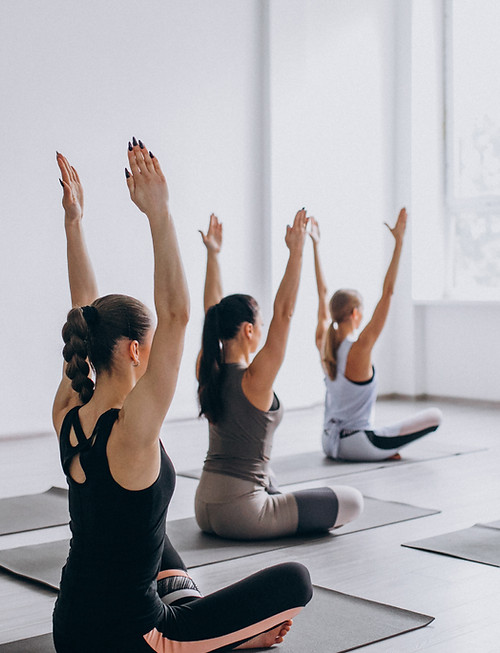.png)
Yoga, an ancient and complex practice, began as a spiritual pursuit in India several years ago. Rooted deeply in Indian traditions, it comprises a set of physical postures and breathing patterns aimed at achieving harmony between the mind, body, and spirit. The term "yoga" itself originates from the Sanskrit word ‘Yuj,’ meaning union or addition. In ancient times, yoga was practiced by sages and regarded as both a science and an art of healthy living. Today, yoga has evolved into an alternative therapy for various physical and mental ailments.
Yoga is an ancient practice that originated in India over 5,000 years ago. It combines physical postures, breathing exercises, meditation, and ethical principles to promote physical, mental, and spiritual well-being. Here are some key aspects of yoga.
Yoga is not just about physical exercise; it also encompasses a broader philosophy that includes ethical guidelines (Yamas and Niyamas), meditation, and self-discipline. The ultimate goal of yoga is to achieve a state of harmony and balance in all aspects of life.
Yoga Philosophy

Offers Cardiovascular Benefits
Scientific studies indicate that yoga restores and improves baroreceptor sensitivity, thereby lowering blood pressure and treating hypertension. Additionally, yoga can produce positive outcomes for non-insulin dependent diabetes and improve lipid profiles, reducing the risk of heart blockages
Why is Yoga needed in Modern Times?
Get In Touch
We’re here to help you take the first step



What Sets I-Span Apart?
I-Span stands apart from regular physiotherapy practices as it lays its prime focus on both physical rehabilitation and mental conditioning. We not only undertake a treatment of aches and injuries but also prioritize mental resilience and overall well-being. Through our dedicated efforts, we attempt to take I-Span to the pinnacle of success in comprehensive physical recovery and rehabilitation services.
Types of Yoga
Hatha yoga is the most popular form of yoga, focusing more on physical movements than on meditative or still postures. It involves breath-controlled physical movements and exercises. Various asanas (postures) are part of Hatha yoga, with each session typically ending in savasana, or the resting position.
At I-Span, we offer yoga services through seasoned trainers who can guide you in the art of therapeutic yoga. Our trainers will teach you yoga poses that can be integrated into your busy lifestyle and practiced daily for optimal results. The yoga services we offer include:

Yoga Aligned with Psychology

Eye Yoga

Restorative Yoga

Mental Health

Get In Touch
We’re here to help you take the first step


